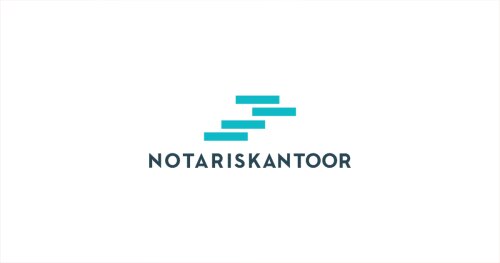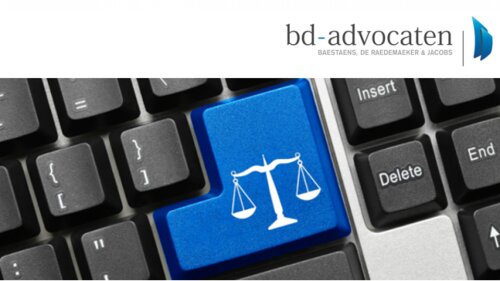Best Business Lawyers in Belgium
Share your needs with us, get contacted by law firms.
Free. Takes 2 min.
Or refine your search by selecting a city:
List of the best lawyers in Belgium
About Business Law in Belgium
Belgium, a thriving hub for business in Europe, boasts a robust legal framework that facilitates commerce and trade. The country's strategic location, multilingual workforce, and stable economy make it an attractive destination for businesses. Belgian business law is characterized by its complexity, encompassing various legal fields including corporate law, tax law, competition law, and intellectual property law. Belgian business law is harmonized with European Union legislation, allowing for better integration within the European market.
Why You May Need a Lawyer
There are numerous situations where individuals and businesses may require legal assistance in the business sphere in Belgium:
- Starting a Business: Navigating legal requirements for company formation, registration, and compliance.
- Contract Law: Drafting, reviewing, or negotiating contracts and agreements.
- Employment Law: Understanding labor regulations and resolving employment disputes.
- Intellectual Property: Protecting trademarks, copyrights, and patents.
- Taxation: Complying with local and EU tax obligations and optimizations.
- Mergers and Acquisitions: Structuring deals and ensuring legal compliance during transactions.
- Litigation: Representing your interests in legal disputes and court proceedings.
- Corporate Governance: Advising on directors’ duties and shareholder rights.
Local Laws Overview
The Belgian legal system is based on civil law and includes several key aspects relevant to business:
- Corporate Structures: Choices include public limited companies (NV/SA), private limited companies (BV/SRL), and partnerships.
- Registration and Licensing: Businesses must register with the Crossroads Bank for Enterprises and may require local licenses.
- Taxation: Both direct (corporate income tax) and indirect taxes (VAT) apply, and Belgium follows EU VAT directives.
- Employment Law: Covers working conditions, dismissal procedures, and collective labor agreements.
- Dispute Resolution: Options include litigation, arbitration, and mediation.
Frequently Asked Questions
1. What types of business entities can I set up in Belgium?
Common types include public limited company (NV/SA), private limited company (BV/SRL), and branch office, each with its specific requirements and legal implications.
2. What are the corporate tax rates in Belgium?
As of 2023, the standard corporate tax rate is 25%, with reduced rates available for small and medium enterprises meeting specific conditions.
3. How do I register a business in Belgium?
Registration is done through the Crossroads Bank for Enterprises, requiring documentation specific to the type of business entity.
4. What are the reporting obligations for a Belgian company?
Companies must maintain accurate accounting records, file annual financial statements, and submit tax returns annually.
5. Are there specific laws for e-commerce in Belgium?
Yes, e-commerce is governed by Belgian consumer protection laws, data protection regulations, and European directives.
6. What are my responsibilities as an employer in Belgium?
Duties include drafting employment contracts, ensuring health and safety compliance, and managing payroll and social contributions.
7. How can I protect my intellectual property in Belgium?
Businesses can apply for trademark registration, patent protection, and enforce copyright laws to safeguard their intellectual assets.
8. Are there any anti-competition laws I should be aware of?
Yes, Belgian and European laws regulate anti-competitive practices, mergers, and acquisitions to ensure fair competition.
9. How are business disputes typically resolved?
Disputes can be resolved through negotiation, mediation, arbitration, or litigation, depending on the nature and complexity of the case.
10. What legal requirements must be fulfilled for a merger or acquisition?
Mergers and acquisitions require thorough due diligence, compliance with corporate and competition laws, and may require regulatory approvals.
Additional Resources
For further information and assistance, the following resources can be helpful:
- FPS Economy: Provides insights into business registrations and market regulations.
- FOD Financiën/Service Public Fédéral Finances: Offers tax and financial guidance.
- Belgian Chambers of Commerce: Offers support and resources for businesses.
- European Union ICIP (Industrial and Commercial Intellectual Property): Information on protecting intellectual property rights.
Next Steps
If you require legal assistance with business matters in Belgium, consider the following steps:
- Research Legal Experts: Look for law firms or attorneys specializing in business law in Belgium.
- Consultation: Schedule a consultation to discuss your specific legal needs and obtain professional advice.
- Documentation: Gather all relevant documents and information pertaining to your case or business matter.
- Evaluate Options: Work with your legal advisor to explore the best course of action based on your situation.
Lawzana helps you find the best lawyers and law firms in Belgium through a curated and pre-screened list of qualified legal professionals. Our platform offers rankings and detailed profiles of attorneys and law firms, allowing you to compare based on practice areas, including Business, experience, and client feedback.
Each profile includes a description of the firm's areas of practice, client reviews, team members and partners, year of establishment, spoken languages, office locations, contact information, social media presence, and any published articles or resources. Most firms on our platform speak English and are experienced in both local and international legal matters.
Get a quote from top-rated law firms in Belgium — quickly, securely, and without unnecessary hassle.
Disclaimer:
The information provided on this page is for general informational purposes only and does not constitute legal advice. While we strive to ensure the accuracy and relevance of the content, legal information may change over time, and interpretations of the law can vary. You should always consult with a qualified legal professional for advice specific to your situation.
We disclaim all liability for actions taken or not taken based on the content of this page. If you believe any information is incorrect or outdated, please contact us, and we will review and update it where appropriate.
Browse business law firms by service in Belgium
Belgium Attorneys in related practice areas.
Browse business law firms by city in Belgium
Refine your search by selecting a city.
















